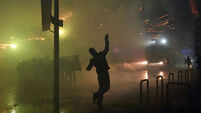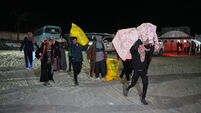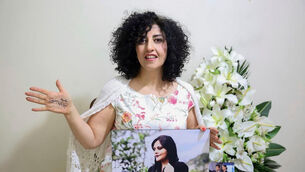Uzbeks hit out at US backing for president
Thousands of civilians are reported dead in the country after three days of violence and hundreds are reported to be trying to flee to neighbouring Kyrgyzstan.
Gunfire persisted again in the eastern city of Andijan where security forces fired on protesters last week a clash that reportedly left several hundred dead and new reports emerged that violence in nearby towns killed hundreds more.














